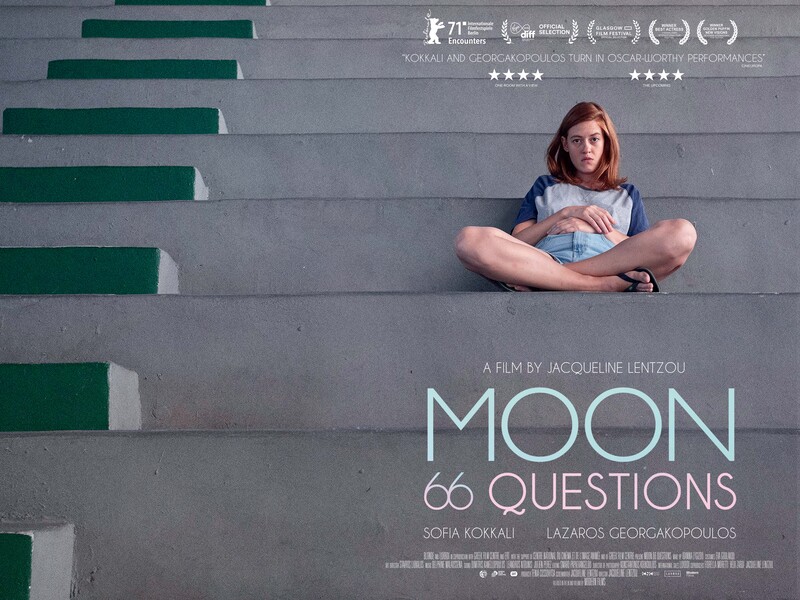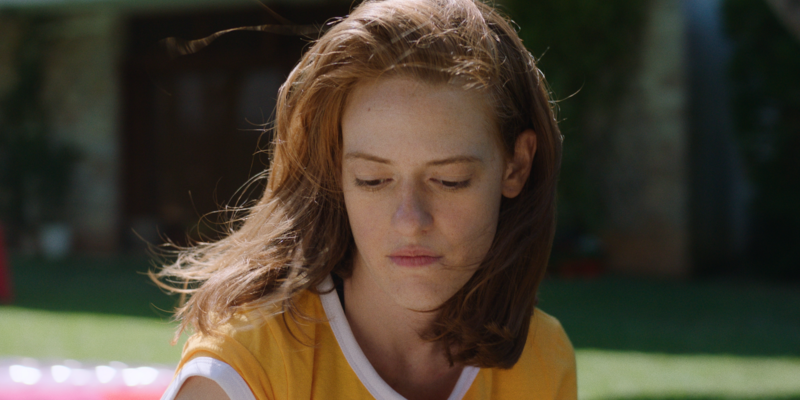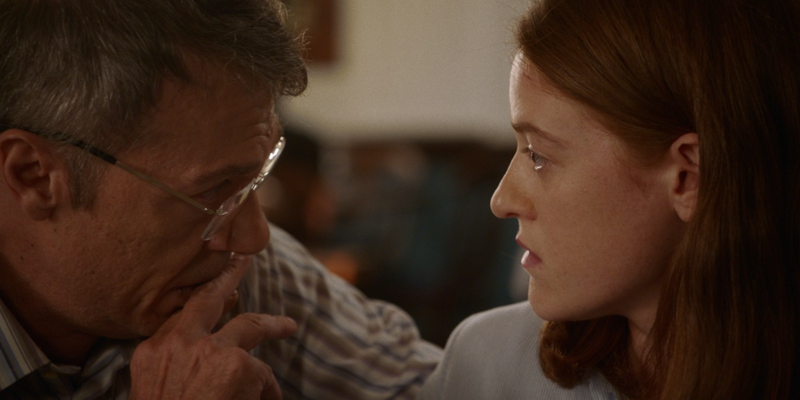
Review by
Benjamin Poole
Directed by: Jacqueline Lentzou
Starring: Sofia Kokkali, Lazaros Georgakopoulos

Moon, 66 Questions, the remarkable debut feature of writer/director
Jacqueline Lentzou, begins with a discordant abstract which will
distinguish the loose narrative pulse of its storytelling. In a plaintive
voiceover playing over a purposefully drab home-video montage of travel
(old motors, the view from a plane, even cable cars) we are informed that
"when we fall in love with someone" we fall in love with a person "in that
moment," a juncture which is, of course, due to the immutable laws of
temporality and the human condition, privy to change. Events are framed by
Artemis (yes, like the hunter - a deliberate code in this film embroidered
with symbolism) as she documents her journey; she is a young woman who is
returning to a Greek home which she has been hitherto estranged from. Dad
has been diagnosed with multiple sclerosis, and, as the eldest child, it
now falls to Artemis to tend to him.

Lentzou’s film depicts Artemis’ return, her father’s illness, and the
almost jovial apathy of her family, via abstruse sequences of her
interacting with her environment. As her father’s body increasingly fails
him, so is Artemis further disillusioned, and Lentzou’s visual set
communicates this sense of alienation through non-causal sequences and
lingering close ups. The effect is emotive, the cinematic language one of
significant visual detail: a recurring motif is legs or arms in motion,
such as lithe limbs paddling in a swimming pool shot underwater, which is
a brutal contrast to Artemis’ father’s inhibited physicality.
Moon, 66 Questions accomplishes immersion with this
conceptual approach: we see events entirely from Artemis’ perspective,
spending the entire film with her, witnessing her private and public
moments. Sofia Kokkali is superb as the lead, characterising the
film with her aloof but authentic performance. At one point, alone, she
crawls about on the floor, in the manner of someone struck with a
physically wasting disease. Is she attempting to empathise, or just
messing about to pass the time? Either could be true: at times
Moon, 66 Questions can feel like a fly on the wall
documentary, such is the lived-in nature of its characters, and their true
unknowability.

Upon this stream of consciousness arrangement, structure is imposed by a
dialect of icons and codes, such as the tarot cards (Artemis is a bit
wistful and new-agey) which intersperse the film and act as titles for its
varied chapters (using, as one would hope, Pamela Colman Smith’s intricate
and beautifully candid Rider-Waite pack). An early example is the Two of
Swords - a card suggestive of female intuition and choices to be made
(even if you aren’t au fait with the deck, Colman Smith’s art is always
instinctively evocative). At times the allegories are a bit more on the
nose... Throughout, the car from the earliest shots of the film is duly
driven, awkwardly manoeuvred Austin Powers style in a garage, crashed and
then vividly scrapped in a compactor: bit like life, yeah?

Nominally a film about accepting responsibility and overcoming pain from
the past, perhaps Moon, 66 Questions is better recounted as
a study of individual experience. Its style and storytelling, with its
dense solipsism and visually dominant slow burn, will not be everyone’s
glass of Ouzo, but those whose tastes it does meet will find themselves
drunk on its vivid imagery and hypnotic pace. In its indefinite and skewed
approach to the life of a young woman, it reminded me of that
We're All Going to the World's Fair
film, another film about a young person where the impetus is upon evoking
a withdrawn, aimless experience. Could we be seeing a new wave of
storytelling concerning this generation and their once removed digital
methods of communication, their all-encompassing absorption? Existing in
narratives where the devastating denouement is the eventual realisation
that adulthood, with its attendant responsibilities and relative lack of
freedoms, is as inevitable as it is inconvenient?

Moon, 66 Questions is in UK cinemas
from June 24th.

